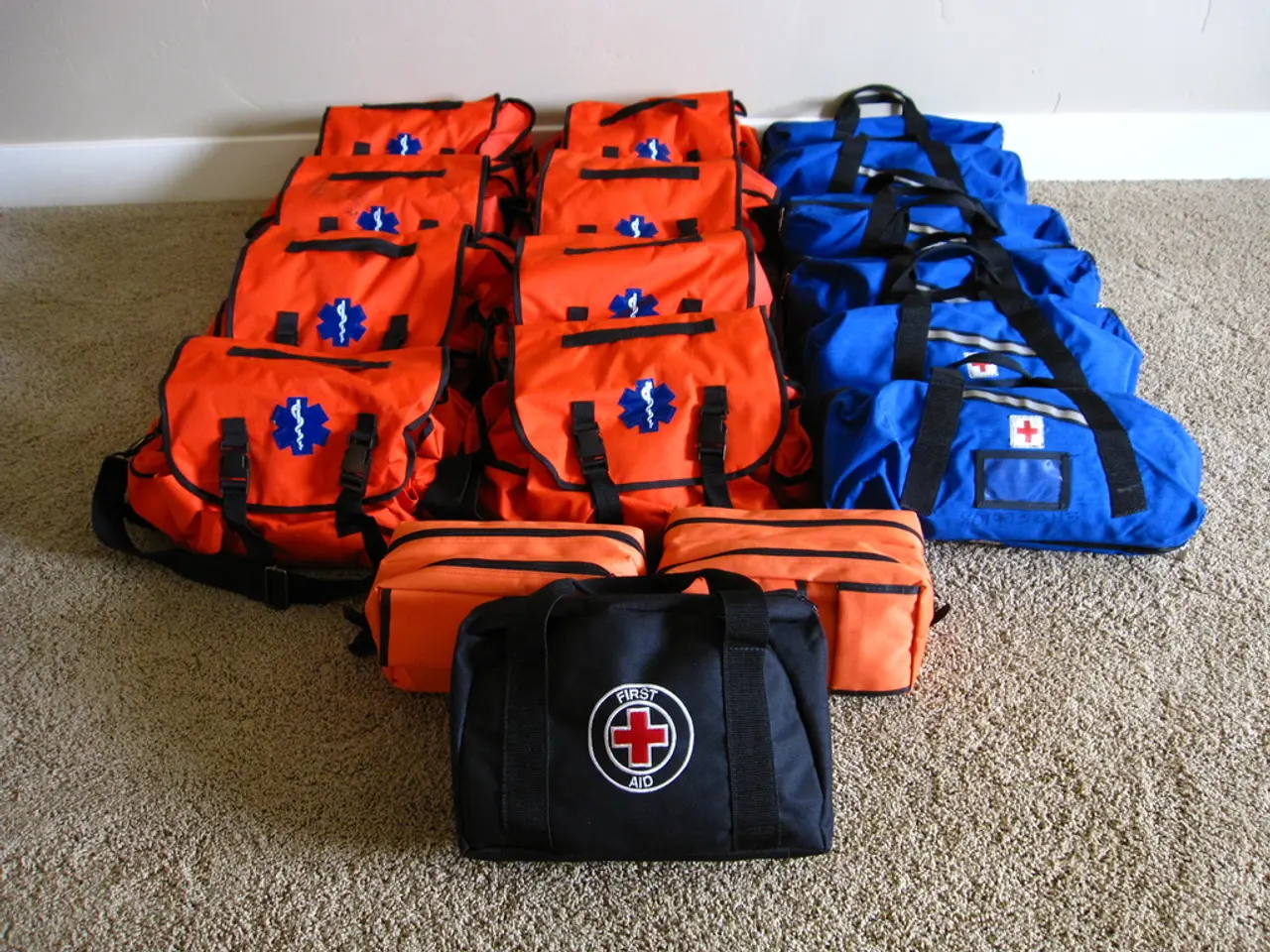Overseeing Infections in Newborns Before Term
In the delicate world of premature babies, the collaboration between vigilant parents and dedicated healthcare professionals is paramount in ensuring the health and resilience of these vulnerable infants. With underdeveloped immune systems, preemie babies are prone to various infections, including respiratory infections like pneumonia, bronchitis, and respiratory syncytial virus (RSV) infection.
Best Practices
Early skin-to-skin contact between the mother and baby, even for premature infants, can enhance bonding and support breastfeeding, which provides essential antibodies for immunity. Proper hygiene practices, including handwashing before handling the baby, are essential to minimize the risk of infection transmission. Regular monitoring for signs of infection, such as fever, lethargy, or changes in feeding patterns, is paramount for early intervention.
Risks
The use of antibiotics in premature babies may lead to impaired lung function later in childhood. Premature infants are highly susceptible to infections due to their immature immune systems and the need for invasive medical interventions. Premature babies are at increased risk of severe respiratory infections, such as RSV, which can lead to serious illness.
Preventive Measures
Encouraging breastfeeding, as it provides antibodies that help protect against infections, is crucial. Strict infection control practices, including proper use of personal protective equipment (PPE) and isolation of infected patients, are essential. Vaccination and immunization, including the administration of nirsevimab for RSV prevention in high-risk infants, are vital. Ensuring that all family members and caregivers are up-to-date on their vaccinations is also important. Maintaining a clean environment for the baby, minimizing exposure to potential pathogens, is another key preventive measure.
In the neonatal intensive care unit (NICU), common antibiotics used include ampicillin and gentamicin. Techniques such as surfactant administration enhance lung maturity, improving the preemie's ability to breathe independently. Preemies often require additional supplements to meet their unique nutritional needs. Adequate nutrition is paramount for the immune system of preemie babies.
Preventive measures also extend to minimizing the risk of infections within the NICU. These measures include hand hygiene, vaccinations, limited exposure to visitors, and following visitor guidelines. Continuous monitoring helps identify issues such as air leaks or lung infections promptly, ensuring proactive management and optimal respiratory care.
By following these best practices and preventive measures, the risk of infection in premature babies can be significantly reduced. Early detection and prompt medical attention are cornerstones in managing infections in preemie babies. By recognizing subtle signs, attending regular check-ups, and seeking immediate medical attention when needed, caregivers can contribute significantly to the well-being of these vulnerable infants.
References: [1] American Academy of Pediatrics (2018). Policy Statement: Skin-to-Skin Contact and Rooming-In. Pediatrics, 141(4), e20180912. [2] Baxter, L. R., et al. (2018). Antibiotics in the NICU: A Systematic Review. Pediatrics, 141(6), e20180877. [3] World Health Organization (2018). Kangaroo Mother Care: A Practical Guide for Health Workers. [4] American Academy of Pediatrics (2020). Policy Statement: Respiratory Syncytial Virus (RSV) Immunoprophylaxis for High-Risk Infants. Pediatrics, 145(5), e20200090.
- In the delicate world of premature babies, maintaining a bond with skin-to-skin contact, even for newborns, is essential for supporting breastfeeding that provides crucial antibodies for their immunity.
- Proper hygiene, especially handwashing, is vital in reducing the risk of infection transmission to these vulnerable infants.
- Regular monitoring for signs of infection, such as changes in feeding patterns, lethargy, or fever, is vital for early intervention in families with premature babies.
- Encouraging breastfeeding, following strict infection control practices, vaccinations, and maintaining a clean environment for the baby help minimize the risk of infections in the family-health scenario.
- In the neonatal intensive care unit (NICU), common antibiotics used include ampicillin and gentamicin, along with techniques like surfactant administration that improve lung maturity.
- Preventive measures within the NICU also involve hand hygiene, vaccinations, limited exposure to visitors, and adhering to visitor guidelines to ensure a health-and-wellness environment.
- By following these best practices and preventive measures, early detection, prompt medical attention, and regular check-ups can contribute significantly to the mental-health and overall well-being of these premature infants.





